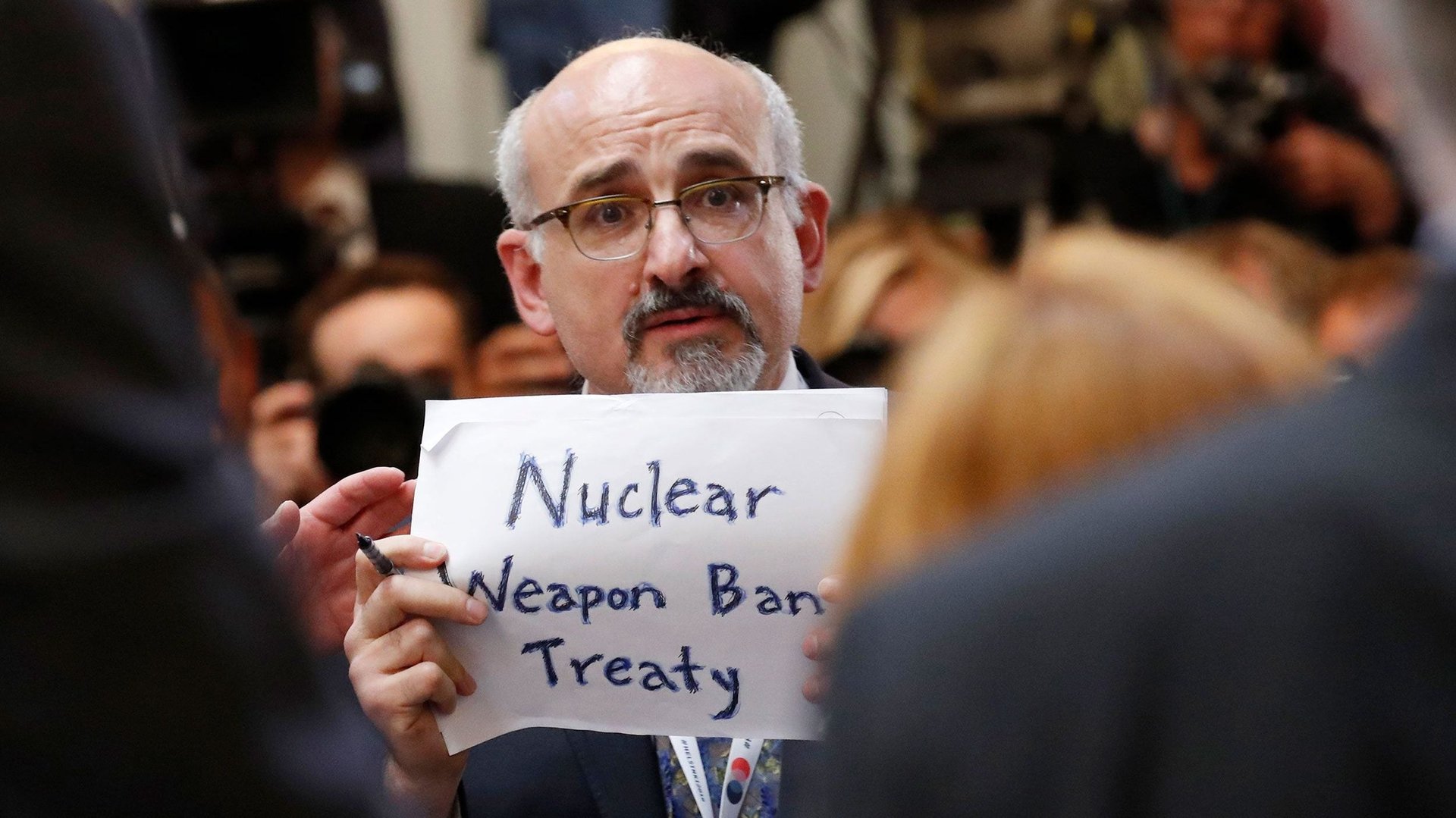How the world reacted to Trump’s proposed withdrawal from a nuclear arms treaty with Russia
Donald Trump said on Saturday he would terminate the Intermediate-Range Nuclear Forces (INF) treaty with Russia, blaming Moscow for breaching the agreement. The treaty, enacted in 1987 by Ronald Reagan and Mikhail Gorbachev to constrain the arms race during the Cold War, banned the two sides from deploying land-based medium-range ballistic and cruise missiles.


Donald Trump said on Saturday he would terminate the Intermediate-Range Nuclear Forces (INF) treaty with Russia, blaming Moscow for breaching the agreement. The treaty, enacted in 1987 by Ronald Reagan and Mikhail Gorbachev to constrain the arms race during the Cold War, banned the two sides from deploying land-based medium-range ballistic and cruise missiles.
The White House hasn’t made the official decision yet, but Trump’s remark has already stirred tension around the world.
Steven Pifer, a senior fellow at the Brookings Institute who was present at the creation of the INF treaty in the Reagan administration, sees a US withdrawal now as “a loser all around.” He argues that the US will get the blame for killing the treaty, distance allies in Europe and Asia, and lift any restraint Russia might have felt about deploying such missiles.
German foreign minister Heiko Maas called Trump’s move “regrettable,” noting it “poses difficult questions for us and Europe.” Maas emphasized the “paramount importance” of the treaty for European countries, all of which are within the range of missiles banned by the treaty.
The UK, a longtime critic of Russia, partially backed Trump, with defense secretary Gavin Williamson telling the Financial Times (paywall):
Our close and long-term ally of course is the United States and we will be absolutely resolute with the United States in hammering home a clear message that Russia needs to respect the treaty obligation that it signed… We of course want to see this treaty continue to stand but it does require two parties to be committed to it and at the moment you have one party that is ignoring it.
One reason for the US to break the treaty is China, according to the New York Times (paywall). The rising power is not bound by the treaty and has faced no limits while developing intermediate-range nuclear missiles, part of its drive to cement a dominant position in its neighborhood. Leaving the treaty would free the US to deploy intermediate-range missiles on its bases in Japan, for example, or Guam.
Russia reacted strongly. Gorbachev criticized the move, telling the Interfax news agency, “Under no circumstances should we tear up old disarmament agreements… Do they really not understand in Washington what this could lead to?”
Konstantin Kosachev, a senior Russian lawmaker, suggested on the Rossiya-24 TV channel that Moscow would react quickly if Trump follows through: “We should respond not to the very fact of Washington’s withdrawal from the treaty, but rather to its practical steps when it is free to do whatever it wants. And, as our president has said, Russia has all the military technical premises for that, its reaction will be rapid.”
He added on Facebook that a withdrawal would mean “mankind is facing full chaos in the nuclear weapons sphere.”
US national security adviser John Bolton will visit Moscow Oct. 22-23 and inform Russian officials of the decision.